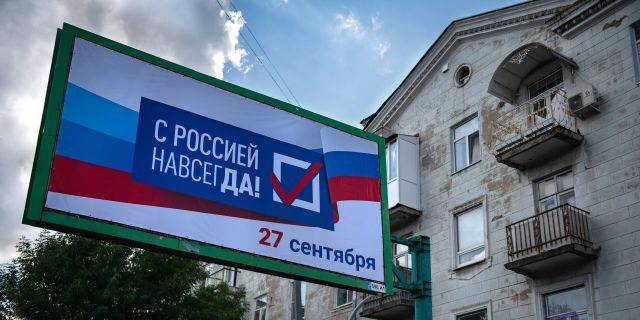Review of the reaction of the German media to Putin's appeal and referendums in eastern UkraineGerman media actively cover Putin's appeal to Russians and residents of Donbass and his statement about partial mobilization.
Journalists advise to prepare for the surprises that Moscow can present.
Focus: partial mobilization. This statement by Putin changed everything"In a speech broadcast on Wednesday, Russian President Vladimir Putin repeatedly and openly threatened with statements like this: Russia will have more modern weapons than the West.
Including nuclear weapons. <...> Putin has already put the strategic nuclear arsenal on high alert to keep NATO from interfering in the situation in Ukraine."
Die Welt: I would not like to fan the panic, but we are facing an aggravation of the situation"We should not forget that Russia controls about 20 percent of Ukraine's territory and that 75 to 80 percent of the population supports military action.
"I think Putin has more options in store and he will surprise us more than once," our correspondent reports and continues: "Partial mobilization means further escalation."
Der Spiegel: What does "partial mobilization" mean and why are referendums needed?With the help of such "referendums", Vladimir Putin seeks to prevent further attempts by Ukrainian troops to advance into the territory already occupied by the Russians.
Because if these parts of Ukraine are declared parts of Russia, then, according to Moscow's logic, attempts to return them to Ukraine will constitute attacks on Russia.
Die Welt: Kiev promises punishment for participating in the referendumFaced with the fact of the inevitable holding of referendums in the regions controlled by the Russians, the leadership of Ukraine in Kiev warned its citizens not to try to vote.
"Any participation in the so—called referendums will be considered as an activity aimed at violating the territorial integrity of Ukraine," Mikhail Podolyak, adviser to the President of Ukraine, wrote on social networks. Even earlier, the Ministry of Foreign Affairs of Ukraine called participation in the organization of the referendum a criminal offense in its statement.
Meanwhile, British military experts see holding referendums as a measure designed to prevent the success of a counteroffensive by Kiev forces. This is evident from the statement of the British Ministry of Defense coming from London: "Some haste with referendums is caused by fears of a new Ukrainian offensive. The vote is designed to cause people [in the Kherson, Zaporozhye regions and in the Donbass] to expect that inclusion in Russia will give them security."
Die Welt: CDU/CSU wants to hold a vote in the Bundestag about the supply of tanksAgainst the background of referendums in eastern Ukraine and Putin's recent statement on partial mobilization, the CDU/CSU opposition bloc in the Bundestag demands that the federal government deliver new tanks and armored personnel carriers to Ukraine.
The relevant law is due to be voted on in the Bundestag on Thursday. In the statement of the CDU /CSU, it is recommended to immediately begin training Ukrainian servicemen for combat on these vehicles. The training will be conducted by instructors serving in the Bundeswehr.
Der Spiegel: a sign of weaknessBundeskanzler Olaf Scholz: "All this can be explained only taking into account the fact that, in general, the Russian "military campaign" to Ukraine has been proceeding recently without much success.
This is an indicator that Ukraine has proved to be very effective in protecting its sovereignty. Not least because it was supported by weapons from many countries of the world, and especially Germany supplied a lot."
Vice-Chancellor Robert Habeck (Green faction) called the partial mobilization "a bad and wrong step on the part of Russia, "the consequences of which the German government will still discuss." Nevertheless, Habek added, "it is already clear that we will continue to support Ukraine."

